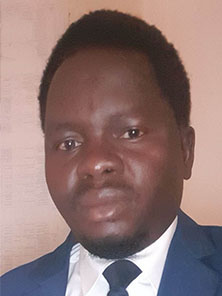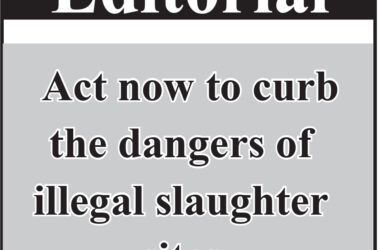By Gama Hassan Oscas
In South Sudan, the prevalence of medical negligence and malpractice has reached a critical point, posing serious threats to public health and safety. The alarming number of mushrooming health facilities run by unqualified or untrained medical professionals without proper regulations has led to catastrophic health outcomes for many innocent patients. From high death rates to wrong diagnoses and illegal abortions, the consequences of this crisis are deeply concerning. This critical opinion delves into the health and legal ramifications of medical negligence in South Sudan, emphasizing the urgent need for comprehensive reforms to safeguard the well-being of its citizens.
Proliferation of Unqualified Medical Professionals and Fake Health Facilities
One of the most alarming aspects of the healthcare system in South Sudan is the proliferation of unqualified and untrained medical practitioners operating without any form of regulation or oversight. These individuals, lacking proper medical qualifications, pose a grave risk to patients seeking medical treatment. The absence of stringent regulations from health authorities enables these individuals to set up makeshift health facilities without facing any consequences.
Patients seeking medical attention often fall victim to these unscrupulous practitioners who exploit their vulnerability. These fake health facilities offer no guarantees of proper medical care and put patients’ lives at risk. The lack of transparency in these establishments makes it challenging for patients to determine the legitimacy of the medical professionals attending to them, leading to catastrophic health outcomes.
The repercussions of medical negligence in South Sudan are tragically evident in the high death rates and wrong diagnoses plaguing the nation. Patients with minor medical conditions who visit these unregulated health facilities are at risk of never making it home alive. The incompetence of unqualified medical personnel leads to wrong diagnoses and improper treatments, exacerbating patients’ conditions and increasing the likelihood of preventable deaths.
Moreover, the absence of proper medical training and oversight allows individuals with minimal knowledge of medicine to offer treatments they are not qualified to administer. This lack of expertise results in improper medical decisions and grave consequences for patients who are misled into trusting these unqualified practitioners.
Perhaps one of the most horrifying consequences of medical negligence is the prevalence of illegal abortion practices carried out in these fake makeshift clinics. Women seeking reproductive healthcare face life-threatening risks as untrained individuals perform dangerous and unsanitary procedures. These unauthorized abortions violate women’s reproductive rights and endanger their lives, highlighting the urgent need for comprehensive legal reforms.
The lack of access to safe and legal abortion services leaves women with no alternative but to resort to risky procedures, jeopardizing their health and well-being. The absence of stringent regulations and oversight contributes to the perpetuation of illegal abortion practices, undermining the reproductive rights of women in South Sudan.
Another distressing aspect of medical negligence in South Sudan is the rise of faux doctors who falsely present themselves as qualified medical professionals. Without proper education or training, these individuals masquerade as doctors and offer unauthorized medical consultancy services, endangering the lives of unsuspecting patients.
Patients seeking medical advice from these unauthorized consultants often receive inaccurate and potentially harmful guidance. The lack of medical ethics and expertise of these individuals puts patients at significant risk and underscores the urgent need for strict regulations and accountability in the healthcare sector.
The rampant use of fake foreign medical certificates without proper authentication reflects a failure on the part of the national education ministries in South Sudan. The lack of robust verification processes allows unscrupulous individuals to use fraudulent credentials to establish and operate medical facilities. This failure undermines the credibility of the healthcare system and puts patients’ lives at risk.
The lack of stringent regulations and oversight has resulted in individuals with no medical qualifications whatsoever practicing medicine in South Sudan. Some individuals have not studied beyond primary education and have little to no understanding of medical ethics. This lack of professional ethics leads to serious consequences, as patients are subjected to substandard care and improper treatments.
Operating under the guise of medical professionals, some individuals learn how to administer injections after working as cleaners in medical facilities, leading to catastrophic health outcomes for patients who unknowingly trust these impostors with their health.
In an alarming trend unique to South Sudan, foreigners with no authenticated academic documents are able to freely establish and operate medical facilities without hindrance. These individuals capitalize on the lack of access to well-established medical facilities, particularly for low-income citizens. Exploiting the vulnerable population, they prioritize profits over patient safety and well-being.
The lack of strict regulations and accountability mechanisms for foreign medical practitioners fosters an environment where unqualified individuals exploit the healthcare system for personal gain. This exploitation endangers the lives of patients who are left with limited options for proper medical care.
The devastating impact of medical negligence and malpractice in South Sudan demands immediate legal action and comprehensive reforms. Victims of medical errors and malpractice must have access to justice and the right to seek damages for the harm caused to them or their loved ones. However, the absence of strong legal frameworks and enforcement mechanisms hinders the pursuit of justice for these victims.
To address the crisis of medical negligence, it is imperative to establish robust legal mechanisms to hold unqualified medical practitioners accountable. Stricter regulations, licensing requirements, and verification processes for medical qualifications are essential steps in safeguarding patient safety.
Furthermore, legal reforms must prioritize patient rights, informed consent, and access to safe reproductive healthcare. Implementing these reforms will not only serve as a deterrent to medical malpractice but also ensure that patients’ rights are protected and respected.
The devastating consequences of medical negligence and malpractice in South Sudan are a dire reminder of the urgent need for comprehensive reforms in the healthcare sector. The proliferation of unqualified medical practitioners and fake health facilities has resulted in high death rates, wrong diagnoses, and illegal abortion practices that jeopardize the lives and well-being of innocent patients.
Stricter regulations and enforcement mechanisms are essential to hold unqualified individuals accountable and ensure the provision of safe and effective healthcare services. The national education ministries must take immediate action to authenticate medical certificates, safeguarding the credibility of the healthcare system.
Additionally, empowering patients with knowledge of their rights and the risks associated with seeking medical treatment from unqualified practitioners is vital to protecting their well-being. Collaboration with international organizations and donor agencies can provide valuable support in implementing these reforms and strengthening South Sudan’s healthcare system.
Only through decisive action, collective efforts, and a commitment to accountability can South Sudan address the crisis of medical negligence and malpractice, ensuring a healthier and safer future for its citizens.
The writer is an Advocate and can be reached at Email: oscarsgama@gmail.com




